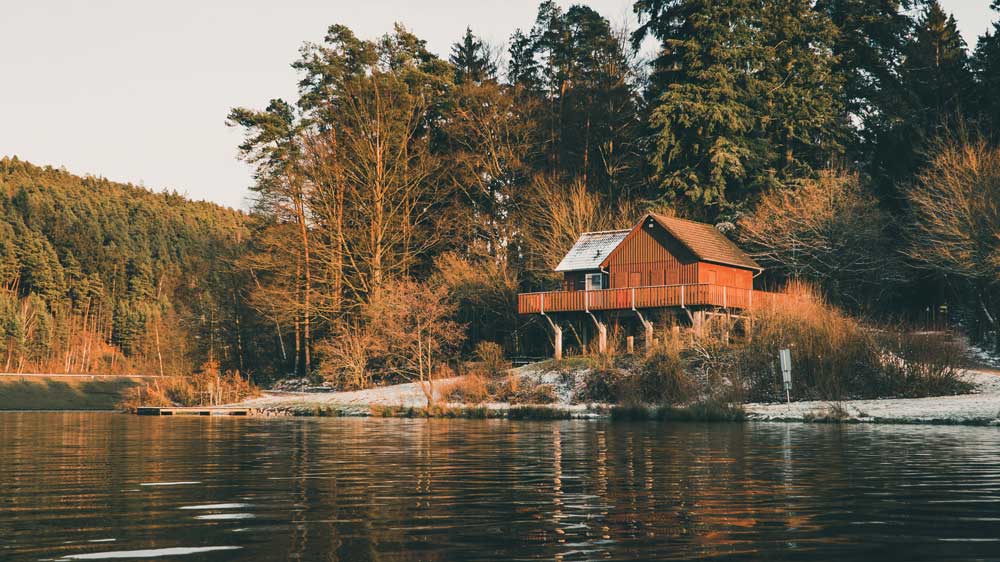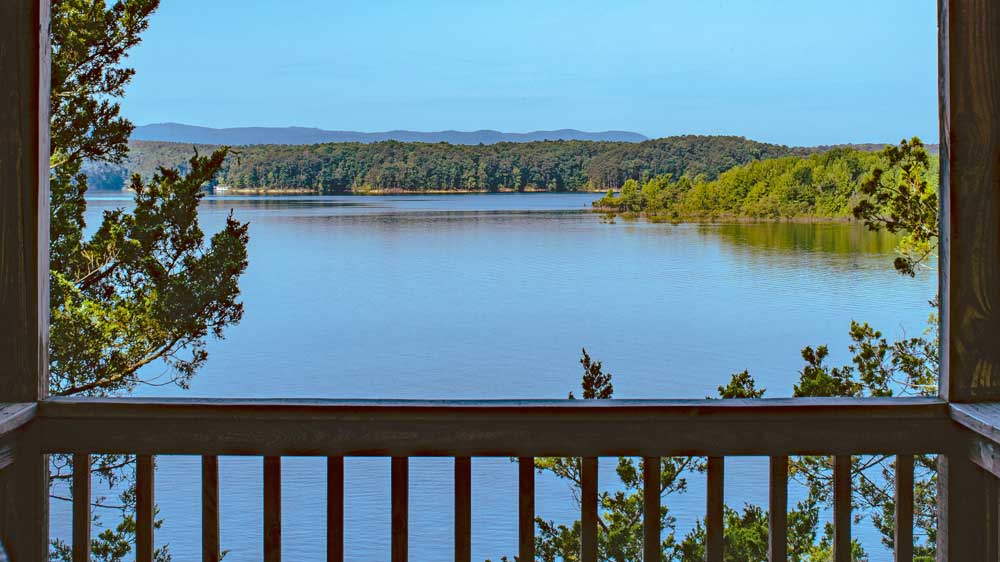
Owning lakefront property can be a dream come true for many Americans and Canadians. Like any investment, there are pros and cons to owning a second home, especially one right on the water. Understanding the pros and cons of lakefront property can help you decide if it’s right for you.
Before you buy a lakefront property, consider its proximity and access to water. Lakefront sounds great, but you need to understand what that truly means. Is the water easily accessed through a private beach or dock? Is it easy to get to the water or is the area too steep? Is the area filled with swamp vegetation making it a less desirable area?
Answering these questions and considering the pros and cons of owning a lake house can help you choose the right property for you and your family.
Pros of Owning Lakefront Property
First, let’s look at the benefits of owning a lake house, including the investment potential, various activities that await, the views and quality time with friends and family.
Lakefront properties are a strong investment
Waterfront properties typically hold high demand, which means they hold their value. If you’re investing for even a little while, you can typically expect appreciation in the value of the home and therefore profit. If you hold onto the property long-term, you’ll realize even greater returns. Additionally, if you are considering turning your lake house into a vacation rental, lakefront properties often command high rents.
There are plenty of activities
If you’re looking for an investment that’s also a pleasure for you and your family to enjoy, nothing compares to owning lakefront property. You are steps away from activities including swimming, jet skiing, wakeboarding, boating, fishing, and swimming.
Lakefront properties have incredible views

Nothing compares to a lakefront view from waking up to a beautiful sunrise to enjoying the beautiful sunset at night, there’s nothing more relaxing and enjoyable than the views lakefront homes enjoy. This is one of the largest benefits of owning a lake house that many people don’t realize until they experience it first hand.
In addition, you don’t have to worry about new developments, homes or retail buildings taking over your view – the water is your only view and it’s not going anywhere.
Lakefront property attracts family and friends
Another one of the largest benefits of owning a lake house is the ability to entertain friends and family. You don’t have to worry about where you’ll meet nor deal with the usual stresses of organizing family getaways with multiple moving factors. Instead, you have the place and all that’s needed are the invites.
Cons of Owning Lakefront Property
Knowing both sides of the pros and cons of owning a lake house is important. The cons aren’t meant to deter you from the investment, but to open your eyes to the risks they involve.
The cost can be prohibitive
Lakefront properties typically cost more than non-lakefront properties because of the desirability of the homes and the lower supply. For example, as of the date of this post, you can buy a 3 bedroom, 2 bathrooms, 1,100 square foot home on a 5,227 square foot lot close to the water for $800,888 on Lakeview Ave, South Lake Tahoe, CA. But a waterfront home on the same street costs US$1,295,000 for a 2-bedroom, 1.5 bathrooms, 1,440 square foot home on a 5,009 square foot lot. That’s a 61% difference just for the lakefront property. Similarly, in Port Carling of the Muskoka region, you can buy a 3-bedroom, 2-bathroom, 1,400 square foot home on 14.5 acres close to the water for C$749,000. Not far away, is a vacant 7.14 acre waterfront lot for C$1,995,000. That’s a difference of over +37.5% and without a house!
Friends and family can expect use of the property

Owning lakefront property also means friends and family will expect to use it. They’ll not only ask to use it for a weekend getaway but also things like hosting weddings or other celebrations. You may find yourself dealing with ‘freeloaders’ and it could strain your relationships.
Lakefront properties require a lot of maintenance
Just like any home, lakefront properties require a lot of upkeep and it can cost much more not only because of its location, but the unique issues lakefront properties have including:
- Humidity resulting in mold – Mold can be devastating to a home’s structure and livability. It can cause health problems among you and your family members and can cause rust and rot throughout the home.
- High winds – Excessive winds in open areas can cause structural damage that can be costly to repair.
- Falling trees – Falling trees are another large risk in wide open areas, putting your home, cars, and even lives at risk.
- Floods – Since the property is located close to the water, the risk of flooding is high. Not only must you carry flood insurance, but there may be out-of-pocket expenses that are not covered.
Higher insurance costs
Home insurance on a vacation property is usually much higher than a primary residence because of the risk of vandalism and theft while it’s vacant, not to mention general maintenance issues arising when you’re not there.
Investing in a security system with remote monitoring can help reduce the risk of serious issues occurring in your absence and may help lower your insurance premiums.
Insurance costs are typically higher if you’ll use the property as a rental too. It’s important to talk to your home insurance representative to see what discounts you’d be eligible for, especially if you bundle your primary home and lakefront property home insurance together.
Mosquitos could be an issue
Mosquitos are a larger nuisance around bodies of water. They can be annoying and even cause health issues if the mosquitos in the area are carrying diseases.
To reduce the risk consider installing fans in most rooms in your lakefront home and even using fans outdoors to make it harder for mosquitos to fly in the premises of your home. Also, remove any standing water right next to your property, and make sure all screens and windows are properly fit so there aren’t tiny holes for the mosquitos to enter.
Excessive regulations on what you can do with your property
Most areas have additional regulations on what you can do with your property including the home itself and the dock. The state of Michigan, for example, has natural features setback ordinances you must follow to protect Michigan’s lakes. Setback ordinances may include restrictions on construction, earth-moving activities, storage of materials and tree, shrub, groundcover removal or mowing. In most areas in the United States and Canada, you’ll also need approval from other government departments including the U.S. Army Corps of Engineers and Department of Fisheries and Oceans (in Canada) for work in and around the water.
Final Thoughts
Owning lakefront property can be exciting, but make sure you understand the good and bad sides of it. Just because a property is on the lakefront doesn’t make it amazing automatically. Know its structure, the layout by the water, and the risks of owning the property to make sure it fits in your budget and is a sound investment that you and your family can enjoy for many years.
